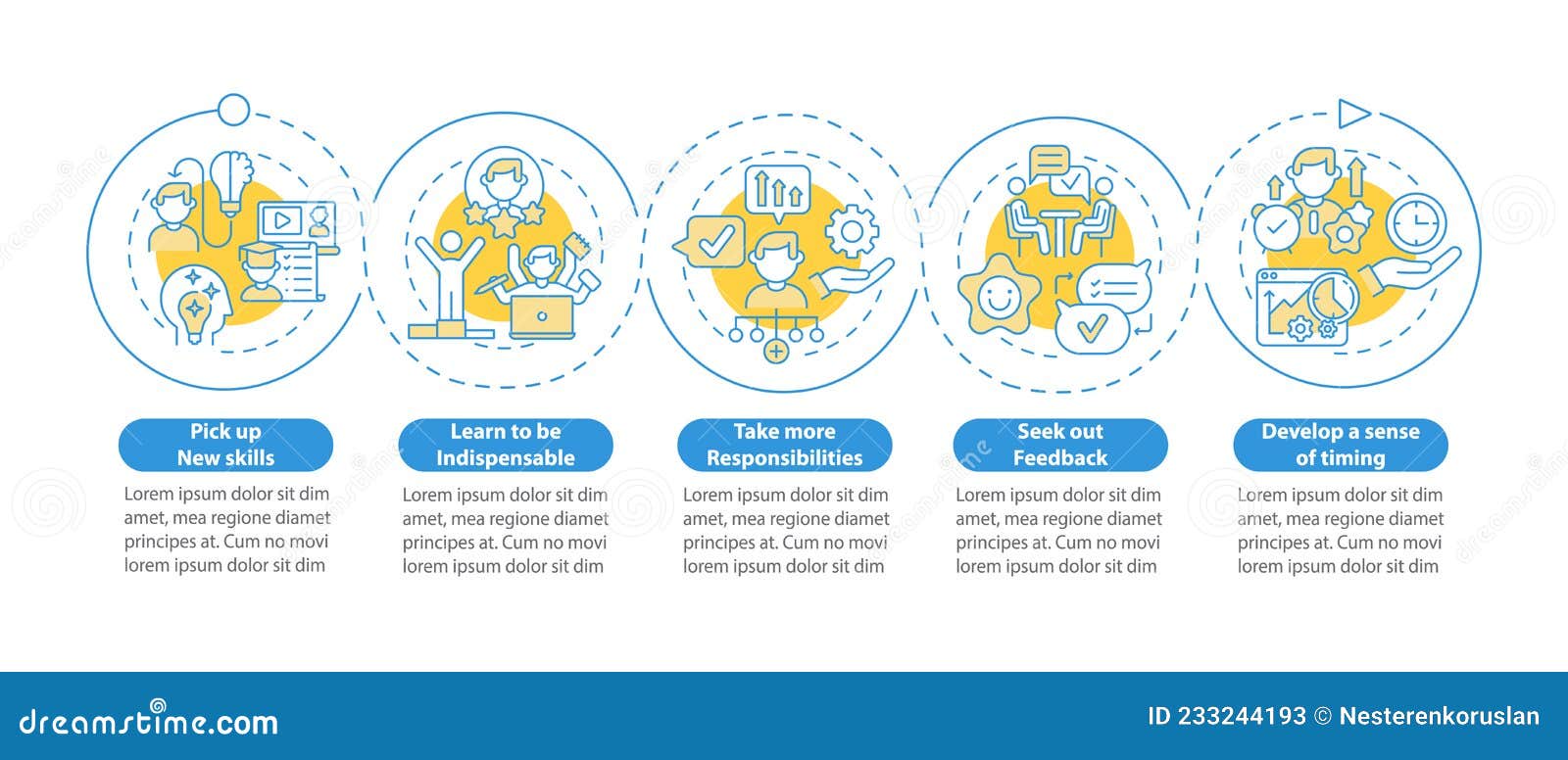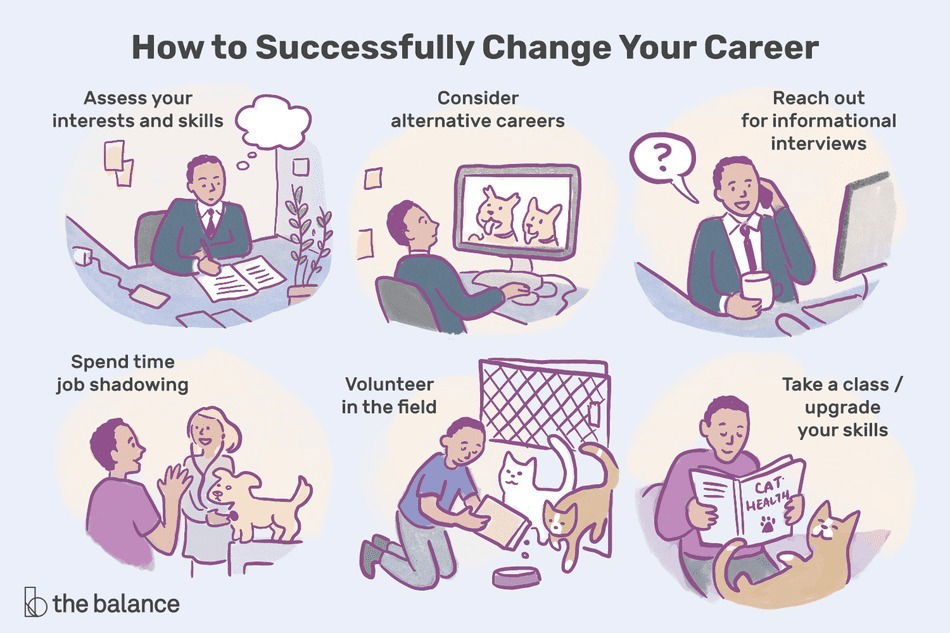
Career Advancement Tips for Every Professional

Charting Your Course: Career Advancement Tips for Every Professional
The journey to career success is a personal one, paved with ambition, hard work, and a dash of strategic planning. It's not just about climbing the corporate ladder; it's about navigating a complex landscape, constantly adapting and evolving to reach your full potential. Whether you're just starting out or a seasoned professional, these tips will equip you with the tools and mindset to unlock your career aspirations.
1. Embrace the Power of Continuous Learning:
The world of work is in constant flux. To stay ahead, commit to lifelong learning. This doesn't mean pursuing a degree; it's about proactively seeking out knowledge and skills relevant to your field and personal growth.
- Formal Education: Consider pursuing a master's degree, specialized certification, or online courses to acquire advanced knowledge and credentials.
- Informal Learning: Engage in webinars, workshops, and industry conferences to stay updated on trends and best practices.
- Self-Directed Learning: Leverage online platforms like Coursera, Udemy, and Khan Academy to delve into subjects that pique your interest or enhance your skillset.
- Reading and Networking: Stay connected with industry publications, blogs, and thought leaders. Attend events and connect with professionals in your field.
2. Hone Your Skills and Develop Expertise:
Becoming an expert in your field is key to standing out. Identify your strengths and weaknesses, focusing on areas that require development.
- Identify Key Skills: Analyze job descriptions in your target roles to determine essential skills and knowledge.
- Skill Development: Seek out opportunities to improve your current skills or acquire new ones through training, projects, and mentorship.
- Build Your Portfolio: Showcase your expertise through projects, case studies, and presentations that demonstrate your capabilities.
- Specialize: Focus on a niche area within your field to become a subject matter expert. This can differentiate you and open doors to higher-level roles.
3. Cultivate Your Network and Build Relationships:
Your network is your most valuable asset. It provides access to opportunities, mentorship, and valuable insights.
- Attend Industry Events: Network with professionals at conferences, workshops, and social gatherings.
- Connect Online: Engage on LinkedIn and other professional platforms, actively participating in discussions and connecting with relevant individuals.
- Reach Out and Follow Up: Don't be afraid to connect with people you admire or who have expertise in your field. Follow up after meetings and maintain relationships.
- Offer Value: Be generous with your knowledge and support, offering assistance and guidance whenever possible. Building a reputation for helpfulness will pay dividends in the long run.
4. Master Communication and Build Your Personal Brand:
Effective communication is paramount for career advancement. Clearly convey your ideas, build rapport, and demonstrate your value.
- Develop Strong Communication Skills: Hone your written and verbal communication skills through practice and feedback.
- Practice Public Speaking: Confidently present your ideas and insights in meetings, presentations, and public speaking engagements.
- Build a Professional Online Presence: Craft a compelling LinkedIn profile, maintain an active blog, and engage in online discussions to showcase your expertise and thought leadership.
- Develop a Strong Personal Brand: Articulate your unique value proposition, highlighting your skills, experience, and accomplishments.
5. Seek Mentorship and Guidance:
Mentorship provides invaluable support and guidance. Connect with experienced professionals who can provide insights, advice, and support.
- Formal Mentorship Programs: Explore company mentorship programs or seek external mentorship through professional organizations.
- Informal Mentorship: Identify individuals you admire and reach out to them for advice and guidance.
- Seek Feedback: Ask for feedback from colleagues, supervisors, and mentors to identify areas for improvement and gain insights into your performance.
6. Embrace Adaptability and Embrace Change:
The workforce is constantly evolving. Embrace new technologies, stay updated on industry trends, and be willing to adapt to new challenges.
- Embrace New Technologies: Familiarize yourself with emerging technologies and software relevant to your field.
- Stay Agile: Be open to learning new skills and adapting your approach to changing circumstances.
- Develop Emotional Intelligence: Cultivate empathy, self-awareness, and interpersonal skills to navigate complex situations and work effectively with diverse teams.
7. Take Calculated Risks and Embrace Challenges:
Stepping outside of your comfort zone is essential for growth. Seek out new challenges and opportunities that push you to learn and develop.
- Volunteer for New Projects: Take on challenging projects to gain new experiences and demonstrate your capabilities.
- Seek Out Leadership Opportunities: Volunteer for leadership roles within your company or professional organizations to develop your skills and influence.
- Embrace Feedback: Actively seek feedback and use it as an opportunity to learn and grow.
8. Be Persistent and Don't Give Up:
Career advancement takes time, effort, and perseverance. Embrace setbacks as learning opportunities and maintain a positive and proactive attitude.
- Set Realistic Goals: Establish achievable milestones and break down larger goals into smaller, manageable steps.
- Stay Motivated: Surround yourself with supportive colleagues and mentors, and celebrate your successes along the way.
- Learn from Failure: View setbacks as opportunities for growth and learning. Reflect on mistakes and identify areas for improvement.
Conclusion:
The path to career advancement is a marathon, not a sprint. By embracing continuous learning, honing your skills, building a strong network, and taking calculated risks, you can navigate this journey successfully. Remember, success is a journey, not a destination. Stay focused, embrace challenges, and celebrate your achievements along the way.

Here’s more about the topic discussed above:
Level Up Your Career: Practical Advancement Tips for Every Professional
In today's rapidly evolving workplace, career advancement is a constant journey. It's not just about climbing the corporate ladder, but about continuously learning, developing new skills, and expanding your professional horizons. Whether you're just starting out or are a seasoned professional, there's always room for growth and improvement.
This comprehensive guide offers practical and actionable tips to help you navigate your career path, unlock your potential, and achieve your professional goals.
1. Master the Fundamentals:
- Self-Awareness: Understanding your strengths, weaknesses, values, and aspirations is crucial. Reflect on your career goals and what motivates you.
- Continuous Learning: The workplace is constantly changing. Invest in ongoing education, professional development, and stay updated on industry trends. Embrace online courses, workshops, seminars, and conferences.
- Sharpen Your Skills: Develop a strong skillset that's in demand. Identify areas for improvement and proactively seek opportunities to enhance your skills.
- Effective Communication: Strong communication is essential. Develop your written and verbal skills, active listening, and ability to articulate your ideas clearly and persuasively.
2. Build a Strong Professional Network:
- Expand Your Circle: Attend industry events, join professional organizations, connect with colleagues and mentors on LinkedIn, and participate in online forums.
- Cultivate Meaningful Relationships: Go beyond superficial networking. Engage in conversations, build rapport, offer support, and seek advice.
- Stay in Touch: Regularly follow up with your contacts, share relevant articles or industry news, and offer assistance when possible.
3. Embrace Leadership Opportunities:
- Take Initiative: Don't wait to be asked; seek out opportunities to lead projects, volunteer for special tasks, and contribute to your team's success.
- Become a Problem-Solver: Identify challenges and proactively propose solutions. Demonstrate your ability to think critically and find creative solutions.
- Be a Team Player: Collaboration is key. Support your colleagues, share your knowledge, and contribute to a positive team environment.
4. Seek Mentorship and Guidance:
- Find a Mentor: Identify someone you admire in your field and ask for their guidance. Mentors can provide valuable insights, support, and career advice.
- Be a Mentee: Offer your support and assistance to others. Mentoring can deepen your understanding of your field and enhance your leadership skills.
- Embrace Feedback: Seek out feedback from your superiors, colleagues, and mentors. Use constructive criticism to improve your performance and identify areas for growth.
5. Craft a Compelling Personal Brand:
- Define Your Value Proposition: What unique skills, experience, and perspectives do you offer? Clearly communicate your value to potential employers and clients.
- Build an Online Presence: Develop a professional LinkedIn profile, create a portfolio website, and engage in online communities related to your industry.
- Showcase Your Achievements: Highlight your accomplishments, projects, and contributions. Share your expertise through articles, blog posts, or presentations.
6. Navigate Workplace Politics with Grace:
- Build Trust: Be reliable, trustworthy, and maintain confidentiality. Treat others with respect and integrity.
- Be Assertive: Communicate your needs and expectations clearly. Stand up for yourself and your ideas while maintaining a professional demeanor.
- Focus on Collaboration: Embrace a team mentality and focus on shared goals. Avoid office gossip and negative behavior.
7. Embrace Change and Adapt:
- Stay Curious: Develop a lifelong learning mindset. Embrace new technologies and industry trends.
- Be Flexible: Adapt to changing demands and responsibilities. Embrace new challenges and be open to new opportunities.
- Embrace Technology: Stay current with digital tools and software that can enhance your productivity and performance.
Conclusion:
Career advancement is an ongoing journey that requires dedication, self-awareness, and a willingness to learn and grow. By implementing the tips outlined in this guide, you can position yourself for success, build a fulfilling career, and unlock your full potential. Remember, your career path is your own; define your goals, stay focused, and continuously strive to improve. With hard work, dedication, and a growth mindset, you can achieve your professional aspirations and make a lasting impact in your chosen field.
